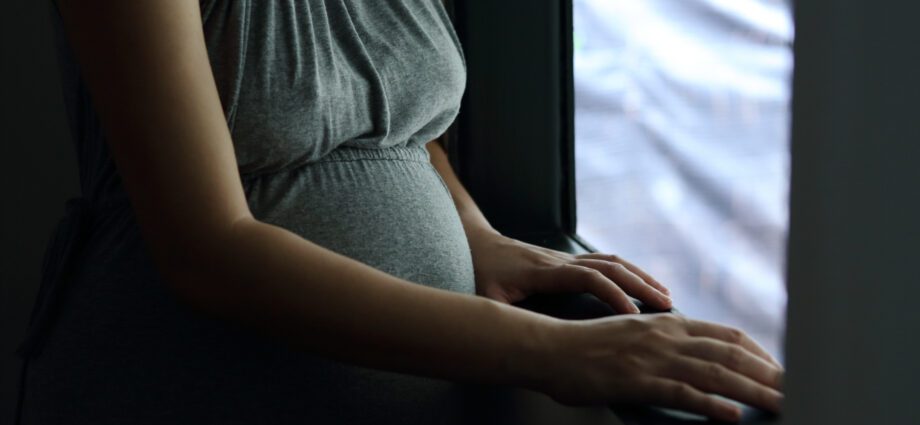Contents
Does denial of pregnancy have consequences for the child?
We are talking about denial of pregnancy when a woman finds out that she is pregnant beyond the first trimester. The number of cases per year in France is estimated at 2 per 1000. the partial pregnancy denial denotes denial that ends during pregnancy, while the total denial of pregnancy concerns mothers who become aware of their condition on the day of childbirth. Throughout the denial, the external manifestations of pregnancy (rounded belly for example) remain invisible. At the moment of the “lifting of the denial”, that is to say of the pregnancy awareness and the accompanying verbalization, physical symptoms appear quickly, sometimes within hours.
Various reactions to denial of pregnancy
“We don’t know much about the mechanisms that generate denial, nor about this participation of the body in hiding motherhood,” explains Gisèle Apter, perinatal psychiatrist. Several hypotheses exist, but there is no typical profile or generalizable trigger factor. “Each situation is unique. We cannot say that overweight, social profile or a particular pathology are directly correlated to denial. This peculiarity in the course of pregnancy (denial is not a pathology) is not new and a priori always existed. But its recognition and its media coverage give the false impression that it is on the increase, ”adds Pauline Minjollet, clinical psychologist at the Antoine Béclère hospital (Paris). The reactions of mothers at the time of awareness are then as varied as the profiles and stories of each.
One thing in common: the trivialization of denial
The psychologist notes a similarity between the different patients she has met: “I notice that these women trivialize denial. Very quickly, they (as well as their spouse and those around them) minimize, rationalize what they have just experienced, and do not look back on the past. This is probably akin to a defense mechanism against the feelings of shame and guilt felt towards the baby and those around him. Women are afraid of being stigmatized. In our society, the amalgamation between denial and neonaticide is very frequent, since the Courjault affair. “
Contrary to popular belief, children are however, in the vast majority of cases, well accepted by their parents. “The questions tend to take place on the side of the professionals. For women who have experienced denial, the dramatic dimension of the situation occurs at the moment of awareness and what is more, if it occurs during labor. Mom is overwhelmed with emotions : those of childbirth and those of becoming a mother, ”says Gisèle Apter.
Does denial of pregnancy weaken the mother-child relationship?
She insists that the parenting process starts long before pregnancy. “The majority of pregnancies today are chosen, and different stages such as ultrasound make this time necessary to project, but this is not and has not always been the case,” she continues. The process of becoming a parent begins long before the pregnancy test, and even the desire for a child. “From childhood, women begin a identification work which will allow them when the time comes to position themselves as a mother and to devote themselves to a baby, ”she analyzes. In short, missing out on this labor during all or part of the nine months of pregnancy only affects the end of the process. ” Generally, things are back to normal at birth. The time of childbirth allows to achieve, even if the meeting with the child, the fact of giving him a first name are sometimes delayed by a few hours, ”observes the psychologist.
Mother-child care after denial of pregnancy
The suddenness of birth still requires support, at least the first days after childbirth. “These women often need a longer maternity stay to absorb information and rest. The perinatal network (midwife at home, PMI, mother-child center) can help them return home, ”says Pauline Minjollet. But there is no reason to “make up for lost time” by compensating with intensive mothering. “After birth, these women join everyone else. Some want to hug their baby right away and breastfeed. Others don’t. “
Then the professionals take the time toassess needs. Does the mother face the needs of the newborn, which is by nature very demanding? Do the circumstances of the denial deserve psychological follow-upparticular ? If the denial is total, the psychologist and / or the child psychiatrist are automatically called to the mother’s bedside. If it is partial, it all depends on who announced the pregnancy to the mother: a general practitioner, an emergency doctor, a midwife?
Fathers who are also “victims” of denial also feel a immense guilt and may be shocked by the situation or doubt their partner. According to the two experts, psychological follow-up would also be beneficial to them.
Tell the child about the denial… or not?
Parents’ follow-up will allow them later to be clear with their child. “If the parents worked on the event with a therapist and broke the taboo, in order to live with it, they will pass on their story in a natural way”, observes the psychologist.










